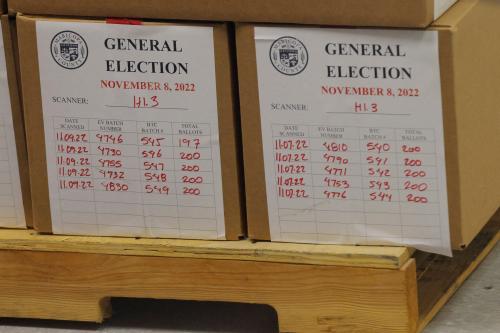Although African nations have made tremendous progress institutionalizing democracy, good governance and the rule of law, all too often these gains are eroded and result in a poor-governance trap. Of particular concern are leaders who win competitive elections primarily because of their seemingly uncompromising support of good governance, but upon attaining power steadily adopt autocratic rule. Unfortunately, this reversion is becoming all too common and one must wonder whether the African democratization project is in retreat, at least in some countries.
Malawian President Bingu wa Mutharika is an interesting case study of such a conversion. Elected through a fair and competitive electoral process in 2004 and reelected in 2009, he came to power with an exemplary record of public service and a solid educational background. He studied at the prestigious Delhi School of Economics in India for his undergraduate and post graduate degrees and earned a doctorate in economics in the United States. By all accounts, Mutharika seems to have put his training to good use: He worked with prestigious international organizations such as the United Nations Economic Commission for Africa, the Common Market for Eastern and Southern Africa and the World Bank. He also served in various capacities with the government of Malawi including as minister of Planning and National Development just prior to ascending to the presidency.
Mutharika fled Malawi in the mid 1960s for fear of persecution during the then increasingly autocratic rule of President Kamuzu Banda. Upon returning to the country, he became one of the founding members of the opposition group –the United Democratic Front (UDF), which was the vehicle he used to win the elections in 2004. Mutharika campaigned on a platform of democratic reform, protection of human rights and commitment to the rule of law. He also promised to revive the economy and to aggressively fight corruption. In 2005, he formed his own political party, the Democratic Progressive Party (DPP), after falling out with former President Muluzi who remained the chairman of UDF.
During his first term as president, Mutharika remained largely true to his democratic ideals and demonstrated a genuine concern for the people of Malawi. Although he faced a polarized legislature, he remained focused on development goals, engaged in a well publicized anticorruption campaign and instituted credible economic management policies that earned him praise from international development organizations, the developed world and donors. Faced with a fragile agricultural sector and a food security threat, Mutharika’s government instituted far reaching input subsidies that, though unpopular with international development agencies, resulted in a major boost in food production. Also during Mutharika’s first term, Malawi qualified for support under the Millennium Challenge Corporation and the Bretton Woods institutions extended grants and loan facilities. These actions were largely in recognition of the leadership’s commitment to good governance and sound management of the economy.
The Unholy Conversion
Since his first term, however, Mtharika has made a 180ºchange in terms of his policies, especially in regards to democratic ideals, rule of law and human rights. It is fair to say that the Mutharika of 2004 would have a hard time recognizing the Mutharika of 2012. The president has become increasing intolerant of criticism, arbitrarily dismissing government officials and harassing civil society activists who oppose his policies. He has publicly indicated that he would “smoke out” and jail those who organize protests against his regime. Incidents of human rights violations in that country have risen due to the president’s directive to state security organs to use all force necessary to halt protests. Also worrisome is that Mutharika’s actions have become erratic and irrational.
Outside of these examples, there are still many other reasons why we should worry about Mutharika’s change. Increasingly members of his government have been implicated in major corruption scandals and the executive office has continued to erode the independence of the judiciary. In 2011 Mutharika dissolved the cabinet and later appointed one that included his brother and wife, which promoted criticisms from a broad spectrum of society. Notwithstanding Malawi’s heavy dependence on external support, President Mutharika has gone on a warpath with development partners, denying the country much needed resources and potentially derailing economic growth and investments in education and health that are crucial to the poor. On March 5, 2012, President Mutharika told donors to “go to hell’ and accused them of supporting local groups who wanted to topple his government a common strategy used by autocrats to divert their failure to deal with domestic economic problems and political opposition. Clearly Mutharika has dramatically changed. Unfortunately, the change is taking Malawi on a dangerous path, hurting the economy, eroding human rights, and burning bridges with the international community.
President Mutharika is expected to be in power until 2014 when his term expires. Should he continue on this trend, Malawi could easily dissolve into chaos before he leaves office. While Africans have several mechanisms to censure such leadership, hardly any criticism of the president has come from African leaders or its regional organizations. But we cannot wait until “things fall apart” to act—it is now time for the African Union’s Panel of Eminent Personalities to take a closer look at what is happening in that country. And while they are at it, include a few other countries that are showing similar trends.



Commentary
Op-edThe Erosion of Democracy in Malawi: President Bingu wa Mutharika’s Unholy Conversion
March 9, 2012